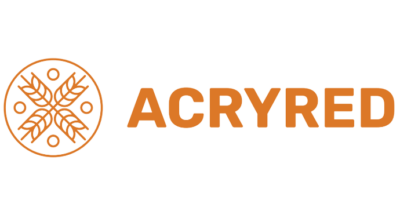Reducing acrylamide exposure of consumers by a cereals supply-chain approach targeting asparagine
COST Action
Total Budget: 125.000€ (first year)
Consortium: N/A
Countries: N/A
Duration: 1 Nov 2022 - 31 Oct 2026 (4 years)
Website: www.acryred.eu

Background
Acrylamide in food is considered a potential health hazard as it may lead to increased risk of cancer. It forms during industrial food processing and home cooking. For years, the cereals processing industry has been engaged in reducing acrylamide formation through production process optimisations and establishment of guidelines.
The 2017 EC Regulation on acrylamide sets benchmarks on acrylamide levels in food, which are considered to be either challenging or insufficient, depending on who is asked. However, if no drastic action is taken, future regulations may threaten the availability of cereals brands.
ACRYRED’s challenge is to establish a multi-disciplinary research and communication network on reducing acrylamide formation, involving the entire value chain from grains to consumer products. If asparagine levels can be reduced through better breeds and farming practices, downstream acrylamide formation in cereals-based products can be reduced significantly. The urgency to resolve the problem is compounded by the fact that there is no grain of guaranteed low asparagine concentration commercially available to meet requirements for different food categories. Further, the processing industry does not have a reliable tool to measure the level of free asparagine contained in raw material.
ACRYRED brings together plant breeders, the agricultural grain farming community, grain traders, European food processors, toxicologists, public regulators and consumer interest groups to establish non-GMO research requirements on asparagine formation in plants, as well as investigate new economic models that encompass the full supply chain. The Action will also elaborate new approaches to inform catering/hospitality and consumers about responsible cooking of cereal-based foods.
Objectives
- Facilitate the exchange of knowledge to encourage joint R&D planning between all scientific disciplines involved in reducing acrylamide levels in cereal-based food to be laid down in a strategic research planning for the next 5 years.
- Stimulate research to identify supply chain management models to promote low free asparagine cereals (wheat, oats, rye) and low acrylamide cereal products,
- Coordinate on how research efforts across Europe of farming practices (crop management, conventional - organic) can be tuned to understand the effects on asparagine formation in cereals.
- Coordinate on plant breeding efforts to achieve the reduction of free asparagine levels in cereal cultivars.
- Agree on a methodology and a process to describe average free asparagine formation characteristics 3 for individual cereal crop cultivars.
- Exchange knowledge and insights about the relationship between acrylamide formation during processing and desirable quality aspects such as aroma, taste, and colour.
- Link research on consumer preferences and willingness to purchase products to the topic of acrylamide and products with lower acrylamide levels.
- Set up and deliver an interdisciplinary ACRYRED training school for ECIs and other researchers, addressing biology (plant breeding), (eco-)toxicology, agro-economics, sensorial and analytical aspects, consumer behaviour, farming practices, trading, storage, and process-technology.
- Develop a programme of 40 individual and group STSMs for academic and industrial researchers covering the full supply chain, aiming to build bridges between disciplines and the academic, industrial, and other stakeholders, to learn about wishes, needs, practices, and constraints of all.
- Support researchers (including PhD students) from Inclusiveness Target Countries to connect to the international network of experts by means of conference grants to foster interdisciplinary knowledge sharing.
- Stimulate the exchange of knowledge from the participants in ACRYRED to the broad group of stakeholders involved in reducing acrylamide in food products through two international conferences, broadly advertised to attract participants from industry, civil society, policy makers, and academia.
Main expected outputs:
- To provide financial support to interdisciplinary research networks through Training Schools, Short Term Scientific Missions, Workshops and Conferences.
- To support mobility of early career scientists
- To support mobility of scientists affiliated in Inclusiveness Target Countries
Role of ILSI Europe
ILSI Europe supports ACRYRED as Grant Holder, overseeing the administrative and financial management of the COST Action and supporting the Management Committee of the Action in monitoring the overall progress.